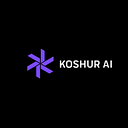Unlocking Your Potential: The Neuroscience Behind Effective Learning
Introduction
Learning is a lifelong journey that shapes our abilities and knowledge. As a neuroscientist and lecturer, I have come to realize that many individuals, especially older students, struggle with their learning. This is not their fault, as we are rarely taught how to learn effectively. The good news is that there are ways to enhance our learning capabilities and speed up the learning process. In this blog, we will explore the neuroscience behind six critical ingredients that can help you learn faster: attention, alertness, sleep, repetition, breaks, and mistakes.
The Science of Learning
Neuroplasticity, the brain’s ability to physically change in response to experience, is the key to learning. When we learn something new, whether it’s information or a skill, tiny connections called synapses form between neighboring neurons in the brain. These connections become stronger and more efficient with repetition and practice. Think of them as pathways that make it easier for us to recall and perform the learned task.
Children are like sponges, effortlessly absorbing information and acquiring new skills. However, as we age, the learning process becomes more challenging. In fact, our ability to learn declines after the age of five, and it gets exponentially harder as we progress into adulthood. But fear not, there are strategies we can employ to overcome these obstacles and enhance our learning potential.
The Six Ingredients for Effective Learning
1. Attention
Attention is a crucial function for effective learning. When we fully focus on a task, we are more likely to retain the information in the long term. In today’s world of constant distractions, maintaining focused attention can be challenging. However, there are techniques that can help improve attention, such as focused attention meditation. Additionally, engaging in moderate exercise for just 20 minutes can significantly improve attention for up to two hours.
2. Alertness
Being alert is vital for optimal learning. When we are fully focused and engaged, we have a higher chance of retaining information. Activating our body’s fight-or-flight response, which releases adrenaline and noradrenaline, increases alertness. Exercise, breathing techniques, and even experiencing a mild stressor before learning can enhance alertness. However, it is essential to strike a balance, as chronic stress can negatively impact learning and memory.
3. Sleep
Sleep plays a critical role in memory consolidation, the process of turning short-term memories into long-term memories. During sleep, the brain transfers information from the short-term storage in the hippocampus to other areas of the brain for long-term storage. Prioritizing quality sleep before and after learning sessions is crucial for retaining information. Pulling all-nighters and cramming may seem effective in the short term, but they hinder long-term memory formation.
4. Repetition
Repetition is key when it comes to learning. Just hearing or seeing something once is not enough to remember it permanently. Repetitive patterns of thinking or doing reinforce the neural pathways associated with the learned task, making it easier to recall. By repeating the material multiple times during the learning period and spacing out learning sessions over several days, we can enhance long-term memory formation.
5. Breaks
Regular breaks are essential for effective learning. Our brains use these breaks to replay and reinforce the information subconsciously. Taking a short 10- to 20-minute break after learning can enhance memory retention. Additionally, avoiding learning similar tasks immediately after a learning session can prevent retrograde interference, which can erase newly encoded information. Strive for a balance between focused learning and adequate breaks to optimize the learning process.
6. Mistakes
Making mistakes is a natural part of the learning process. When we make a mistake, our brain releases neuromodulators that enhance attention and focus. Embracing mistakes opens up a window for neuroplasticity, allowing our brain to adapt and improve. Rather than fearing mistakes, view them as opportunities for growth and learning. Quizzing yourself and challenging your abilities can accelerate the learning process.
Conclusion
Learning faster and more effectively is within your reach by harnessing the power of attention, alertness, sleep, repetition, breaks, and mistakes. By implementing these strategies, you can unlock your potential and make the most of your learning journey. Remember to prioritize your attention, give yourself breaks, and embrace the learning process, including the occasional mistake. With these tools in your arsenal, you can become a more efficient and successful learner.
